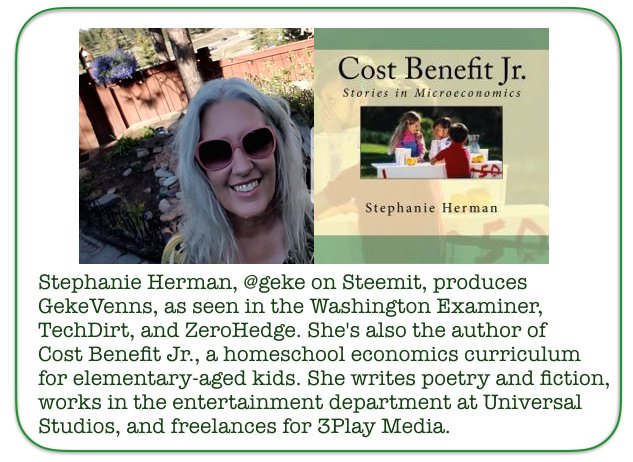
Of course, not every poet cares about meter. Writers of free verse don't concern themselves with strict structure. But even free verse contains aural rhythm, and any line of poetry can be scanned (meaning, to define its scansion or map out its rhythm).
For those of us, however, who like the challenge of conforming to tight restraints and making words obey us, poetic rules involving feet and meter provide just that opportunity. Shakespeare was a poet who enjoyed employing such rhythmic rules, and when the context of his words and meaning required it, breaking those same rules.

Following are the ten types of poetic feet. The first four are known as the primary feet and the last two are the substitutive feet. There are others like the tribrach and molossus that we won't go into here, but you can research them if you find poetic feet interesting!
iamb
x /
two syllables: unstressed, stressed
one-word example: about
two-word example: a friend
trochee
/ x
two syllables: stressed, unstressed
one-word example: fleeting
two-word example: join them
dactyl
/ x x
three syllables: stressed, unstressed, unstressed
one-word example: candlestick
two-word example: fairy tale
anapest
x x /
three syllables: unstressed, unstressed, stressed
one-word example: overwhelm
two-word example: the occult
bacchius
x / /
three syllables: unstressed, stressed, stressed
one-word example: I can't think of any
two-word example: about face
antibacchius
/ / x
three syllables: stressed, stressed, unstressed
one-word example: forewarning
two-word example: two timer
amphibrach
x / x
three syllables: unstressed, stressed, unstressed
one-word example: discreetly
two-word example: a baseball
cretic
/ x /
three syllables: stressed, unstressed, stressed
one-word example: Annie Hall's "la-di-da"
two-word example: sit alone
spondee
/ /
two syllables: stressed, stressed
one-word example: tongue-tied
two-word example: great day
pyrrhic
x x
two syllables: unstressed, unstressed
one-word example: no word exists without a stressed syllable
two-word example: “in the room, now” where “in the”
is a pyrrhic and “room, now” is a spondee

And different poetic meters require different numbers of feet per line.
monometer = one foot per line
dimeter = two feet per line
trimeter = three feet per line
tetrameter = four feet per line
pentameter = five feet per line
hexameter = six feet per line
heptameter = seven feet per line
octameter = eight feet per line
The basic meter of a sonnet, you might remember from English class, is iambic pentameter. This means there are five feet per line (penta) and those feet are iambs. Below are a few examples:
iambic pentameter:
a day | without | my car | and now | I'm late
for work | atop | the green | and grass|y hill
dactylic tetrameter:
hopefully | you will be | hungrily | wanting me
after we | celebrate | under the | apple tree
anapestic dimeter:
in a world | where the birds
can't express | without chirps
And the following lines from the song "My Favorite Things" utilize a pyrrhic foot followed by a spondee:
When the | dog bites
When the | bee stings
I hope this helps writers better understand poetic feet. Please ask any questions you have in the comments!

I asked peeps in The Writers' Block if anyone could come up with a one-word example of a bacchius foot.....
Redundant :-)
Impressive!
Wow. This is more than I ever wanted to know about poetic rhythms. Very informative though.
Poetry is sort of disrespected, probably because of all the bad poetry in the world... people don't always realize how complicated it can be! Remove the words "love" and "soul," add a nice meter and some fancy footwork, and a poem can be very entertaining!
I think it's because anyone can write poetry, and if it seems vague and somewhat confusing, then it must be deep. Probably the same goes for any form of art (painting/music/dance/whatever)
People think they can write poetry. And with free verse, certainly everybody thinks they can. But the fact is almost nobody can write poetry. People mistake the ability to write verse with the ability to write poetry. Doggerel is also not poetry.
The real problem is that we have been telling students that anyone can write poetry, they just have to express themselves, put their feelings on the page or some such nonsense. People have more respect for musicians than poets in no small part because you KNOW you can't play an instrument if you can't play an instrument. You can't fake it.
The same, though, is actually true of poetry. If you can't draw me a photorealistic drawing, you are absolutely not an artist. If you can't write a couple lines of iambic pentameter without even thinking about it, if you can't write me a sonnet, then you aren't a poet. Neither of which means those have to be your preferred styles. But if you can't draw a photorealistic drawing, that just tells me you are throwing paint around because you simply can't do anything. To be an artist means you have mastered a set of skills. You're not being creative if you can't do it right in the first place. You're just excusing your inabilities.
Not you personally, but "you" in the general, generic sense.
Excellent
really great....
poetry is my favourite subject
This is great! Thanks for putting this together for us!
@geke this is probably my favourite post on Steemit thus far ❤️ thanks for putting this together. I love making the words obey them breaking the rules as required 🙏🏾
Very interesting! Thank you for compiling this. Now this is a definite bookmark. I can see how the challenge of adhering to a specific meter would be appealing to folks. Next question I have: What styles of poetry use what meter? Sonnet use iambic pentameter. I know from our chat in discord that limericks use anapestic feet. Are there other poetry types that must use specific meters?
That's a great question and probably something that needs to be compiled... I'll get back to you on that!
very good writing,i like this post
thanks for sharing
good follow now
Wow!! nice poetry. Excellent theme.
hi @geke , this is very interesting to read. and this is something that is very innovative
Super informative geke. Now I am I have an amphibrachic family in my neighborhood lol...